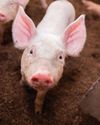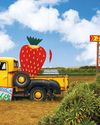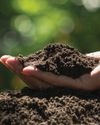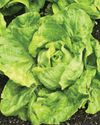
Probiotics are good bacteria that are good for people, and probiotic farming can pump up plant health, which is also good for people. Healthy crops start with healthy soil. Probiotic farming not only makes your soil healthier, but it also offers a wealth of other benefits for farmers who want better crops while improving the growing area and the environment as a whole.
WHAT IS PROBIOTIC FARMING?
Probiotic farming, sometimes referred to as biointensive agriculture, combines various organic farming techniques that focus on making soil healthier by introducing beneficial microorganisms into the growing environment. Probiotic farmers utilize live microbes that are beneficial bacteria, just like the beneficial bacteria people ingest in probiotic foods or dietary supplements.
In this sense, probiotics in farming act as supplements for the soil and ultimately the plants. The more beneficial the bacteria, the more fertile the soil, which potentially maximizes your crop yields while limiting the need for harmful chemical-based fertilizers and pesticides.
In 2018, Luke Heidt, owner of Wisconsin Hemp Flower in Eau Claire, Wisconsin, and author of Luke's Hemp blog (https:// lukeshemp.com), realized that he was a probiotic farmer. "Probiotic farming is a generic term for the best organic practices to increase the life in the soil and to feed the plants by feeding the soil," he says. "Plants do better when they are healthy. Healthy soil makes healthy plants."
WHY CHOOSE PROBIOTIC FARMING?
Probiotic farming is a technique nearly any farmer can use to provide the nutrients their crops need to flourish. Plant probiotics is a promising alternative for soil fertilization that improves crops while protecting the land, without any adverse effects.
Denne historien er fra Best of Hobby Farms 2023-utgaven av Hobby Farms.
Start din 7-dagers gratis prøveperiode på Magzter GOLD for å få tilgang til tusenvis av utvalgte premiumhistorier og 9000+ magasiner og aviser.
Allerede abonnent ? Logg på
Denne historien er fra Best of Hobby Farms 2023-utgaven av Hobby Farms.
Start din 7-dagers gratis prøveperiode på Magzter GOLD for å få tilgang til tusenvis av utvalgte premiumhistorier og 9000+ magasiner og aviser.
Allerede abonnent? Logg på

The RISE of Opportunist WEEDS
Be prepared to see increasing changes in weeds we fight, such as poison hemlock and poison ivy, and in the crops we grow.

LIVESTOCK Health
Prepare yourself for how to spot symptoms of illness in your farm animals so that you can get them help before it's too late.

CUT FLOWER Farming
If you're considering growing flowers for sale, brush up on these five key things to know before diving in.

WINTER Survival
Keep your land, animals and yourself in good shape this winter with this helpful advice.

COVERAGE CONCERNS
Avoid common insurance mistakes for rural and hobby farm businesses.

FARMER'S GUIDE Berries
Set the stage for tasty strawberries, blueberries and brambles with these soil-boosting garden tips.

Preconditioning CALVES
Follow our step-by-step guide to get more money for your calves.

Soil Conservation
Often, outside of having a specific problem that needs to be addressed, soil conservation isn't something every farmer readily thinks about. Yet conserving the soil should be at or near the top of every farmer owner or manager's list of concerns because absent the prevention of soil erosion, we have the opportunity for another dust bowl.

Year-Round Lettuce & Salad Mixes
It's easy to think of salad greens as just a spring- or fall-garden crop, but it's possible to enjoy freshly harvested lettuces, mustards and more from your own garden year-round.

Barn Improvements
Days are never long enough for a farmer. From dawn to well into the night, tasks arise that often require immediate action. Having to search for tools or equipment is an enormous time waster and incredibly frustrating when you can't find what you need, especially when you know you have it.